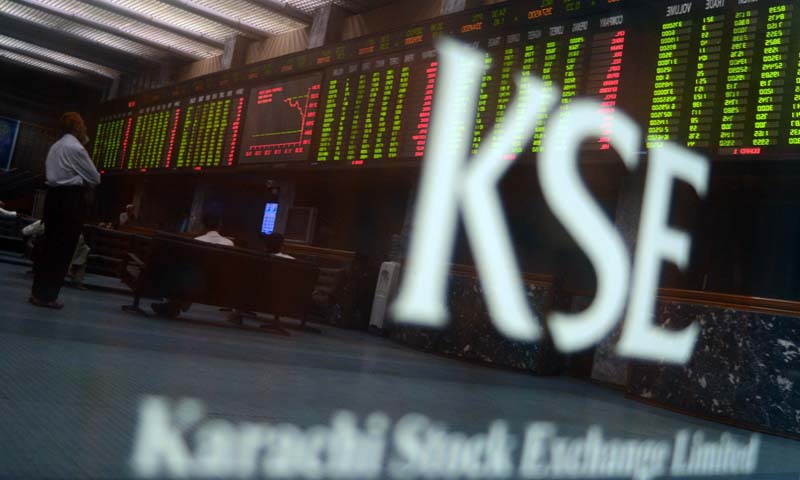
The Karachi Stock Exchange (KSE) made a profit of Rs317.4 million in 2014-15, up 77% from the preceding fiscal year (FY).
The largest of the three bourses operating in Pakistan, the KSE had long been a not-for-profit entity as its 200 members (brokers) had the ownership as well as trading rights.
But after its demutualisation - or corporatisation - in 2012, the combined ownership of those brokers has been reduced to 40%.
The remaining 60% stake currently lies in a blocked account of the Central Depository Company (CDC), as up to 40% shares of the KSE will be offered to a foreign strategic investor. The general public will get the right to buy the rest of the 20% stake through a listing.
It is in this backdrop that the 77% increase in profitability is important because it proves the exchange can offer foreign strategic investors a steady stream of earnings in the future.
According to the annual report of the KSE released on Friday, its profit in 2014-15 would have been even higher had it not been for a non-recurring charge of about Rs28 million related to regulatory registration and supervision fees adjustments.

Income from listings
Income from listing fees grew 8% year-on-year to Rs255 million and constituted 17% of total income and 45% of operating income, respectively. In the preceding fiscal year, these ratios were 20% and 49%, respectively.
Within this income head, annual listing fees rose by 9% while initial listing fee increased by 5%. As for initial listing fee, it is driven by both new Initial Public Offerings (IPOs) and secondary offerings via right issues. There were nine new listings in 2014-15 that raised funds totalling nearly Rs11 billion versus five listings in 2013-14 that raising equity amounting to Rs4.7 billion.
Income from operations
Income from operations of the exchange, which consist of trading fees as well as facilities, equipment, data vending and other fees .These account for 21% of total income, which rose by 29% year-on-year to Rs314 million.
The key driver of income from operations was healthy growth in trading fees that are directly linked with trading volume and value. In the ready market, average daily value traded in 2014-15 was Rs11.1 billion versus Rs8.7 billion in FY14, up more than 27%.
The average daily volume remained largely flat with 233 million shares in 2014-15 versus 229 million shares in 2013-14. However, there was a rise in the average price per share from Rs38 to Rs48, indicating greater activity in higher priced stocks, which drove the increase in value traded in 2014-15.
Management fees, rental and other income, which constituted 12% of total income, rose 5% to Rs179 million in 2014-15.
In total, the KSE gave its shareholders cash dividends of Rs.0.37 per share, or Rs296.55 million out of the profit of Rs317.37 million, for 2014-15.
The benchmark index, KSE-100 Index, increased 16% in 2014-15 to reach 34,399 points on June 30. Pakistan was the second best-performing market in emerging Asia in 2014-15.
The KSE collected taxes from its brokers on securities market transactions and paid an aggregate amount of over Rs1 billion to the government exchequer, up 23.6% from the preceding year.
Published in The Express Tribune, October 11th, 2015.
Like Business on Facebook, follow @TribuneBiz on Twitter to stay informed and join in the conversation.





1719053250-0/BeFunky-collage-(5)1719053250-0-270x192.webp)











COMMENTS (1)
Comments are moderated and generally will be posted if they are on-topic and not abusive.
For more information, please see our Comments FAQ